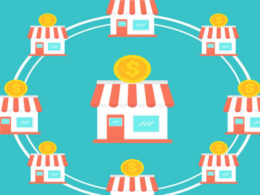I have compiled the most frequently asked questions that I have recieved over the years from clients about outsourcing to Asia. It is my goal to educate you in your quest for manufacturing/outsourcing your products abroad. Education and knowledge is your first defense aganist being “taken” and having a “bad experience!”
Here goes!
Q. Why do people hire agents to source their products in China?
A. Most new, or expanding, entrepreneurs with products that need manufacturing do not have the 1) connections 2) confidence 3) time to source products in China. Savvy product developers spend their time developing their products and business, not shooting in the dark for manufacturing.
Q. Is it really going to save me money manufacturing in China?
A. Yes, you will get the benefit of real savings by manufacturing your products in volume. If your orders are not at least a 20ft container full, you will experience slightly higher pricing. Not all items are good for sourcing overseas; please see the end of this Q&A for further details.
Q. Is the product quality going to be equivalent to the USA?
A. Yes, with the right manufacturer to produce your products you will get the best quality at the most competitive pricing available. No, if you do not secure the correct factory, or go with one that you have no experience or history with. During these hard economic times, it is said that 5,000 + factories a day are closing their doors in China. As an agent, we choose only the best, most trustworthy factories to secure manufacturing.
Q. How long does it take to ship products from China once they have been made?
A. Your goods are coming from a long distance; it is a good idea to plan well in advance before you actually need the product. Because each production will be different, we will advise on a case-by-case basis of your lead times. In general, 30-45 days, counting from the day your order production is completed. It could be shorter, or longer, depending on the product and its technicality, shipping point and final destination. We will do our very best to secure the best schedule for the product delivery based on your needs. We will keep you abreast of the timing, and changes and or updates related to your production to help you plan your schedule.
Q. What is, and how long does it take to do tooling?
A. Tooling is when a factory/manufacturer makes the molds/cavities to produce a product. It typically is associated with plastics, injection molding, casting products. General completion is 2-6 + weeks.
Q. How long does it take to do sample/prototyping?
A. It really depends on how easy or how complex your product is. It can go from 2 weeks to 2+ months. In our quoting process, we will identify the time frame and discuss the findings with you. It would be wise to plan extra time for prototype modifications and or improvements. It usually takes more than one run to attend to all the details, and debug the product. Also factor in the courier time needed between China and the US.
Q. What is the scope of products that KimCo will source overseas?
A. We can source almost every product including plastics, paper, cardboard, textiles, jewelry, and so much more. We do not work with chemicals, electronics, automotive, lotions, solar and liquid goods.
NOTE: We do not choose to take on every product and project. We will review your needs and requirements, and then discuss it with you if we are the best fit to assist with your manufacturing needs.
Q. How many samples does one need from a company to secure sourcing for them?
A. To obtain a quote, at least 3 samples (rough are acceptable) to give factories to begin the quote process is recommended. Since we source from several different factories at once for the best pricing, we need to give them each a sample of what they are to produce. This is hopefully typical, and you should establish this upfront to ensure you are getting the best value out there.
Q. What type of product specs does one need to obtain a manufacturing quote?
A. For a manufacturer to provide an accurate quote they need to know every dimension of every part, all tolerances, and material specs and surface finish requirements. Mechanical drawings, or specs, contain all this information. If your parts need to be made to a specific size and/or if multiple parts are involved that requires close fit assembly, we need engineer’s drawings to get a quote. We emphasize that hand sketches, patent drawings or the likes do not show all dimensions or material callouts and are not acceptable.
We can have our team create the drawings for you; however, this fee is separate and paid upfront after receiving a quote from us. Today most engineering firms use sophisticated CAD software that can create an electronic file which can be emailed. Most prints we receive by email are in .dwg (Autocad), .dxf, .pdf, .jpg or .tif file formats.
Q. What are typical importing shipping “terms” for a product?
A. Our quotes are CIF (cost-insurance-freight) or FOB (freight on board) Long Beach California. This means the product shipment is delivered from the production factory to a Port in US. Our freight forwarding company will arrange the following; sea freight cost from China to the U.S., importation fees, Customs duties, etc. This quote and fee will be billed separate to you, or can be all inclusive. Domestic shipping charges inside the U.S. from the Port of Los Angeles to your address are NOT included in our quote, but can be quoted and arranged as well. ***Quotes to other ports in USA are available usually upon request.
Q. How much does a good agent charge for factory locator services?
A. We have developed an exclusive service which is the most reliable and cost effective way to secure a trustworthy and reputable manufacturer in Asia. From using these factories to produce goods for many years, we can call on these factories to secure manufacturing. For a reasonable fee, most agents will evaluate your needs, select a factory, and get samples made. We charge a $2500.00+ set-up fee to get all the information required to initiate a manufacturing program. This program fee covers one item (any additional similar generations will be evaluated on a case-by-case basis.) Any additional products that require separate molds/tools, processes or applications require a separate fee. Each product will be evaluated on a case-by-case basis.
A typical manufacturing fee covers the following:
-
Manufacturing documentation preparation
-
Factory locator
-
Quotes for product prototyping and tooling (a separate fee for both may be quoted by a factory if applicable)
-
1 final CIF or FOB USA manufacturing price quote (including product packaging art work supplied by client)
-
Arrange tooling with factory
-
Pre-production samples (one (1) per product sourced, will be provided. Additional samples may require a fee)
-
Assist with sample QA (quality assurance)
-
Review with client importing requirements
-
Consulting as needed
Q. How does a company pay for the produced goods?
A. After the samples have been approved and you are ready to make the order, it is standard that the factory will require 50% of the total balance to initiate the production, the other 50% upon completing the manufacturing run. Once the approval of the pre-production samples is approved, and production is started, no changes or refunds are allowed. It is very important to use an industry expert when locating a good company to produce your goods. For instance, once monies for a deposit order leave an American bank, they are impossible to get back if something were to go wrong; you want to work with someone who has solid, reputable factories who can minimize these risks. As many as 5000+ factories a day are closing in China currently, it is imperative to seek out the good, stable manufacturers.
Q. How do you know your manufacturers are good?
A. If you are shooting in the dark for a factory to produce your goods, this will be impossible to guarantee. Our company uses only manufacturers that we have used and trusted for many years. With the temperament overseas, it is always a safe feeling to be protected by trustworthy sources. You can visit Hong Kong Trade Development Counsel at https://www.hktdc.com/ and or Alibaba at https://www.alibaba.com/for a list of resources and manufacturers throughout the world to start your search process. This is where I started myself. Be very diligent in your research, it will pay off in the end.
Q. How long does it take to pick the right manufacturer for products?
A. It depends on the product, quantity, and components; it varies from days to weeks. A thorough search ensures satisfactory results for your benefit. Please be patient and allow time to be as precise when choosing the correct factory to receive, process, and produce your order.
Q. How do you know what prices to negotiate with manufacturers?
A. An agent should have many years of experience working in the manufacturing and exportation field. Understanding manufacturing in China from inside out, we have factory representatives on the ground 24/7 to ensure the factories pricing stays competitive. You want to make sure whom ever you work with, that they have feet on the ground in China working for you. Not having them will cause communication problems, production issues and take a great deal of time to find you sources. I once hired an agent, who lived in Taiwan, and said she sourced in China. See the problem?
It is best to know and take into account the regional and local manufacturing environment. The supply and demand of all factors involved, the competition and quality, and to know at which level the prices are reasonable. You need to also know at which level the prices become attractive without sacrifice on quality. If you are looking into manufacturing on your own, make sure you get at least 3-4 quotes from factories, and be as knowledgeable as possible on the items mentioned abouve. I always recommend that you get a good map of China, know the locations and regions where you are looking for factories. Example, the closer you go to Hong Kong, the more you will pay etc. Do your homework!
Q. Knock-offs are one of the main concerns of produceing products in China, how do you address that?
A. Some Chinese factories do have the problem of not respecting other countries intellectual property rights. However, working with manufacturers who have been in business for many years, and would not jeopardize their reputation, and business, with American companies by not being honest and trustworthy, is very important. We believe big changes will come in the following area; China’s economic growth will inevitably lead to more and more innovation and invention by Chinese entrepreneurs. Their own needs for the protection of their intellectual property rights will be the real force to drive the “internal integrity” change needed in China. There are also safe guards the US Government affords patent holders when a knock-off enters the port which may infringe on an existing US patent. You can check with U.S. Customs for more information.We only deal with and give our business to trustworthy factories.
Q. Is my proprietary information & product safe to show you?
A. Make sure you have the appropriate disclosures when working with anyone in this business. We believe in abundance, that there is plenty for everybody, that one’s success is not achieved at the expense or exclusion of others. We are more than willing to sign an NDA or other documents you suggest. We are in the business to find manufacturing for our clients, not undermined them.
Some Important Factors to Consider:
Not every product is good for outsourcing. Here is our general guideline to figure out if outsourcing/manufacturing is an option for you and your product.
- Long term products are the best candidate for offshore manufacturing. They are products that you will place repeat orders on. The more you order, the bigger the savings for you.
- A product with a good size order is also good for outsourcing, not necessarily a long term item with repeat orders. For example, a promotional item. Again, it is the same reason; bigger volume brings you bigger savings.
- Manufacturers’ minimum order quantity (MOQ) requirement. Manufacturers are mass producers. So if you need a really small quantity to start with, you will be better off just having them made in the U.S. potentially. When your volume gets bigger, then consider China. That being said, the other way to look at it is, for the same amount you pay in US, you may be reaching the MOQ requirement since you pay less on the unit price of your products in China. Generally speaking, the bigger the order size, the happier the manufacturers, the better pricing and the easier the process.
- Longer turn-around-time. After all, your product is being manufacturing in the other half of the globe, lead times should to be expected to be lengthy. Generally, after the first few runs, the factory has the item down and lead times may be shortened. However, if your product requires special features like the dying of fabrics, specialty processes or components, those lead times will remain virtually the same.
- Tooling. If there is tooling involved, then it makes your product a good candidate for manufacturing and gearing up in China. Tooling in China is significantly lower than the U.S. It does take time and effort to make your product right in another country. There are obvious differences that include; money exchange, language, travel, customs, competition. So please plan ahead and allow reasonable time for prototyping.
I wish you much luck in your search for outsourcing overseas. Just remember, no matter where you go, who you get to help you, be educated and knowledgeable of the process. Be your best advocate for success!
Always DREAM BIG!
Kim Babjak






